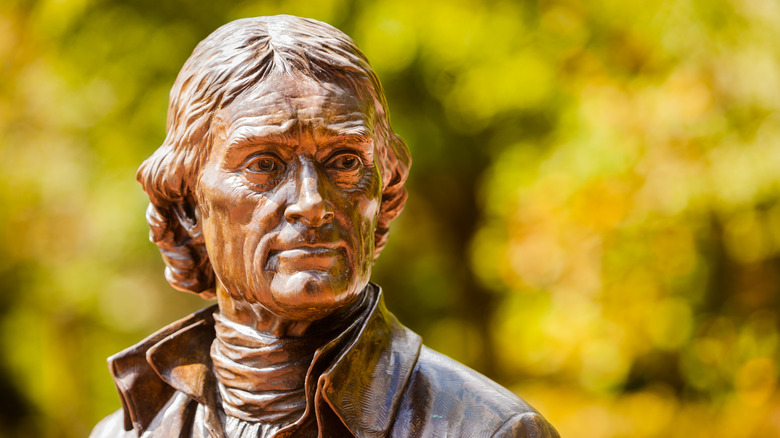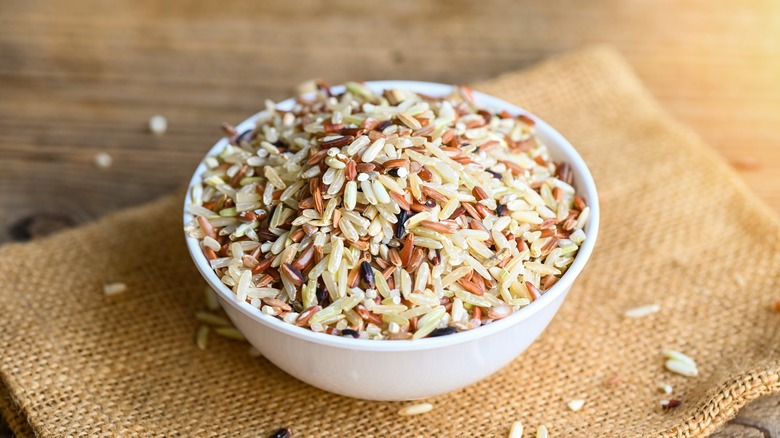Why Thomas Jefferson Smuggled Rice Into The US
Thomas Jefferson is known for the many influential acts of his storied life, but did you know that he was a bit of a foodie as well? For someone who has meant so many different things to so many different people it may be weird to think of Jefferson as a guy that would go so far as to break some laws in order to get a pocketful of rice, but nothing could stand in the way of him and a new delicacy.
As a diplomat living and working in France, Jefferson became fond of European cuisine and specifically noticed how American grown rice was not very desirable on this side of the Atlantic, per Billet and Board, so he set out to find some suitable replacement for American farms to seed. According to Tori Avey, Jefferson had a habit of identifying and recording different ingredients and recipes that he found fascinating as his work brought him to many different places and he experienced different foods and drink. In fact, he often collected ingredients from different regions.
Thomas Jefferson was quite taken with Italian rice
In 1787, his moment came, as Jefferson found himself in the Lombardy region of Italy eating some rice he'd never encountered, but was wildly popular around Europe. Realizing the economic venture this rice could come to mean for the United States (specifically if rice farmers in South Carolina could learn from distribution practices of Italian rice farmers), Jefferson decided to learn as much as he could from this Italian rice, per his estate Monticello.
So he filled two sacks and his pockets with some of the unhusked rice and took a pestle tool back with him out of Italy (via Tori Avey). This initially seems pretty harmless. But technically, this qualifies as smuggling. And, at this time, the crime of smuggling was punishable by death in Italy. To the American rice farmers' relief, he was not caught and instead studied the rice closely, eventually learning that the Italian rice was not a higher quality than the American rice, but rather was just less expensive due to the lack of a middle man for transport around Europe (per Billet and Board).

